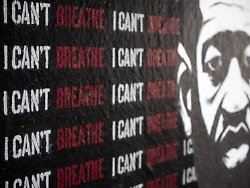Tuesday, May 25, 2021
US Police Victims
George Floyd was murdered a year ago
On May 25, 2020, the African American George Floyd was brutally killed. Worldwide protests against the deadly police operation and a debate about racism in the USA followed. But the police violence against black people never ends.
George Floyd’s agonizing death rocked the United States a year ago and made headlines around the world. On May 25, 2020, the African American was killed in Minneapolis by a white police officer who held his knee behind his neck for nine and a half minutes. This was followed not only by nationwide protests against police violence against blacks, but also by an intense debate about racism in the United States. Many hoped for a profound change. But a year after Floyd’s death, it is unclear how much has actually moved.
Among other things, there are always new deadly police operations. At the end of March, a white police officer in Chicago shot and killed the 13-year-old Latino boy Adam Toledo in a car chase. In mid-April, near Minneapolis, a policewoman killed 20-year-old black Daunte Wright when she apparently accidentally fired her gun instead of her stun gun. Ten days later, in a small town in North Carolina, the African American Andrew Brown Jr. died in a hail of police bullets when he tried to evade arrest in his car.
Little to fear in the event of misconduct
“I really thought my brother’s death would be the final case of police brutality,” George Floyd’s sister Bridgett said recently. “But as we can all see, it goes on. On and on.”
Policemen’s rules were tightened in many states after Floyd’s death, recorded on a cell phone video. But security guards still have little to fear in the event of misconduct. A comprehensive police reform bill named after Floyd has passed the US House of Representatives, but is stuck in the Senate.
And in view of rising murder rates in many cities – among other things a consequence of the economic crisis caused by the corona pandemic – there are headwinds against efforts to withdraw funds from the police and to put the money into social work, for example.
It is clear that Floyd’s death will not go unpunished: a month ago a jury found the white ex-police officer Derek Chauvin guilty on all counts, including the main count of murder of the second degree. The sentence is due to be announced on June 25th, and Chauvin faces a long prison term.
Step towards justice?
President Joe Biden said in April that the guilty verdict against the ex-cop could be “a giant step in the march to justice.” But it is by no means sufficient: “We have to recognize systemic racism and the unequal treatment of minorities by the police and the judiciary and take a firm stance against them.”
But far-reaching reforms are difficult to imagine given the polarization in the US and the bitter trench warfare between Biden’s Democrats and the conservative Republicans. This is already shown by the dispute over the police reform law, which has been rejected by many Republicans. There is also a rift through the population. After Floyd’s death there had been a wave of support for the Black Lives Matter movement – the lives of blacks count – the popularity quickly collapsed again.
Political scientists Jennifer Chudy and Hakeem Jefferson recently pointed out in the “New York Times” that there is now even less support for Black Lives Matter among whites in general, and especially among Republican supporters, than before Floyd’s death. The reason is the “politicization of the issue by the elites”: The Republicans – above all the then President Donald Trump – quickly shifted the focus away from the killing of Floyd to riots on the fringes of the anti-racism protests.
“It’s been a painful year,” said Floyd’s sister Bridgett at a memorial service for her brother on Sunday. “It was very frustrating for me and my family.” But the fight against racism and police violence continues. This also includes symbolic politics: on Tuesday, the first anniversary of Floyd’s death, President Biden will receive the family of the African American in the White House.
.
